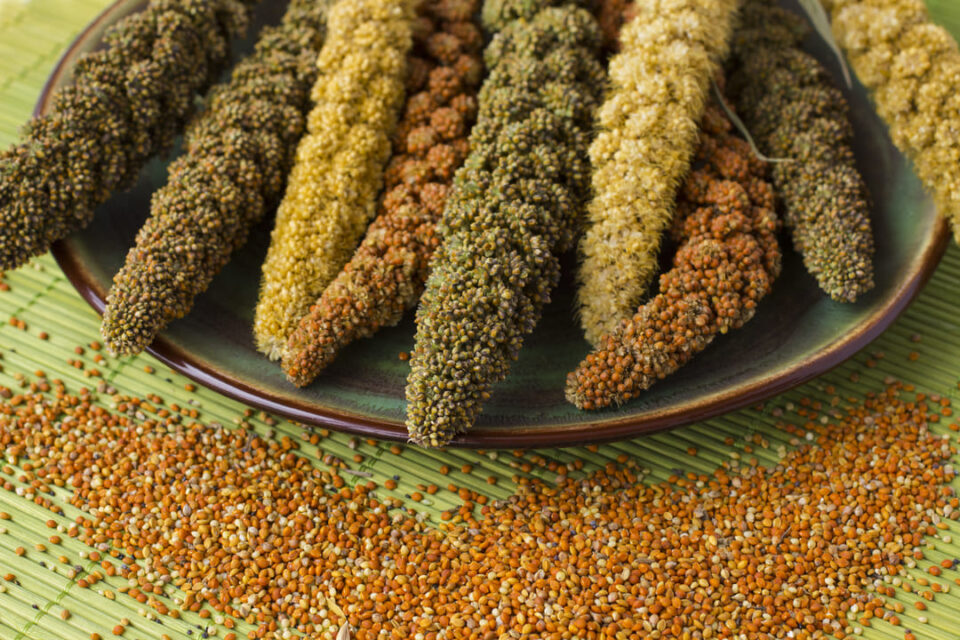With the growing popularity of millet as a nutritious alternative to rice and wheat, many are wondering if they should make the switch. In this article, I’ll review the scientific research on millet and thyroid health and share some of my patients’ experiences.
What the Research Says About Millets and Thyroid Function
Several studies have investigated the effects of millet on thyroid function.
– A 1996 study published in Endocrinologia Experimentalis found that certain compounds called C-glycosylflavones in millets can have antithyroid and goitrogenic effects in vitro and rats. However, it’s unclear if these effects translate to humans eating typical amounts of millet.
– A 2021 review in Frontiers in Nutrition concluded that millet is nutritionally superior to major cereal crops and has several health benefits including the potential to prevent several lifestyle-associated diseases and disorders. They noted that millets are a good source of nutrients important for thyroid health like magnesium and zinc. However, they also contain goitrogens which can interfere with thyroid function in large amounts.
– A 2018 study in the Journal of the Science of Food and Agriculture found that proso millet protein concentrate could help lower TSH, T3, and T4 levels in mice with hyperthyroidism. This suggests millet could potentially help manage hyperthyroidism, but human studies are needed.
So in summary, the research is mixed. Millets seem to have both beneficial nutrients and problematic goitrogens when it comes to thyroid health. Modest amounts are likely fine for most, but those with thyroid issues may need to be more cautious.
Which Millets Are Best for Thyroid Patients?
When my patients Shanti and Geetha, both with hypothyroidism, asked me which millets are best for thyroid health, I explained that there isn’t any conclusive evidence favoring one type of millet over others for thyroid patients. All millets contain beneficial nutrients but also some goitrogens.
I generally recommend my patients with thyroid issues eat millet in moderation as part of a balanced diet unless they seem to cause digestive issues or worsen thyroid symptoms. Foxtail millet is a good option as it’s one of the more commonly available and widely studied millets. But pearl millet, finger millet, and others can also be included.
Finding the Right Balance with Millets
Some of my patients like Vinutha have asked if they should completely stop eating wheat and rice and only eat millet. I don’t recommend this, as it’s important to eat a variety of whole grains for well-rounded nutrition.
For thyroid patients, I suggest gradually adding millet into the diet, perhaps replacing rice or wheat at 1-2 meals per day to start. This allows the digestive system to adjust. Proper preparation by soaking and cooking millets well can help reduce antinutrients and improve digestibility.
If bloating, constipation, or worsening thyroid symptoms occur with higher millet intake, I advise cutting back. Aruna experienced this issue, so we worked on finding an amount of millet that gave her benefits without unpleasant effects. There’s no need to force millets if they don’t agree with you.
Millets for Different Thyroid Conditions
When Rajeshwari asked how often hypothyroid patients should eat millet, I explained that 1-2 servings per day is a good general guideline, as part of a diet that also contains other whole grains, legumes, vegetables, etc.
Gunashekhari, a new patient with hyperthyroidism, wondered if the millet recommendations are different for hyperthyroid vs. hypothyroid patients. The research is limited in this area, but the mouse study I mentioned earlier hints that millets could potentially benefit hyperthyroid patients. I still recommend moderation, perhaps 2-3 servings per day, keeping an eye on symptoms.
For Veena with goiter, millet may not be the best choice since it contains goitrogens. I suggested focusing more on other whole grains and getting enough iodine. If she wants to include millet, having it in small amounts and well-cooked is advisable.
Similarly, I told Arundhati with thyroiditis that small amounts of well-cooked millet should be okay, but to focus on anti-inflammatory foods and avoid large amounts of goitrogens. Gauri, who has hypothyroidism and is pregnant, can safely include some millets but I advised her to be extra cautious with portion sizes and preparation and to make sure she’s getting enough iodine.
Putting It All Together
To sum up, millets can be a nutritious addition to the diets of many thyroid patients, providing beneficial nutrients and variety. However, due to the presence of goitrogens, they are best consumed in moderation as part of a balanced diet. Individuals with thyroid disorders should pay attention to their symptoms and adjust their intake if needed. Well-cooked foxtail millet and other common varieties are good options.
While there are some promising findings, more research is needed to fully understand the impact of different millets on thyroid function. In my experience, the key is finding the right individual balance. Work with your doctor or dietitian for personalized guidance.
By being mindful and listening to our bodies, we can harness the potential benefits of millet while supporting healthy thyroid function. Wishing you all good health on your wellness journeys!

